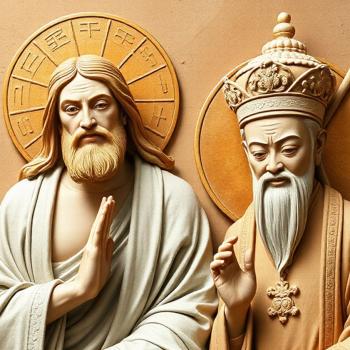Her final petition, written to President Joseph F. Smith, was penned on August 31st, 1903—five years before her death. It included a stamped envelope for his reply. We have no record of how or if he answered.
In every letter written to church leaders, Jane concludes with "Your sister in the gospel." In one to Joseph F. Smith, she begs him to "be a brother." She writes to him as one who desires to bear "the same name as yourself" (Smith), clearly imagining that once adopted into the Smith family, all differences between their skin color will be irrelevant. Though she signs it "Your sister in the gospel," just as she has signed the others, she includes one postscript: "I am coloured."
Jane indicates in her first letter, addressing John Taylor, that she has a firm grasp on the scriptures. Though she seemingly accepts the lore of the day ("My race was handed down through the flood"), she quickly counters it with a reminder that "God promised Abraham that in his seed all the nations of the earth should be blest [sic] & as this is the fullness of all dispensations is there no blessing for me [?]."
The logic is compelling. If all things are now restored and God promised Abraham that all nations would be blessed through him, why would those faithful Saints of African lineage be prohibited in any way? In this dispensational paradigm, there are no future dispensations in which the promise can be fulfilled. There are several scriptures she could have been alluding to, some in Galatians:
Know ye therefore that they which are of faith, the same are the children of Abraham. And the scripture, foreseeing that God would justify the heathen through faith, preached before the gospel unto Abraham, saying, In thee shall all nations be blessed. So then they which be of faith are blessed with faithful Abraham (Gal. 3:7-9).
Had Jane James read these scriptures before and recognized the personal promise given to her—that God would justify her through her faith? Had not she been commended for this faith? When she visited Wilford Woodruff, he blessed her for her faith before telling her that her request for temple privileges would likely not be granted. Joseph Smith had commended her and her family for their courageous journey, asking another guest, John Bernheisel, "Isn't that faith?" and then blessing and assuring them: "God bless you. You are among friends, and you will be protected."
The scriptures were clear: Faith, not lineage, is the avenue to blessings. Jane reminded those who seemed to be blocking her passage of that truth.
Jane's siblings had remained in Illinois and Iowa, most joining the Reorganized Church. No one should be surprised that only independent Jane, with her husband and sons, had accompanied the Mormon pioneers to the Salt Lake Valley. In the last years of her life, her brother Isaac Lewis Manning made his way to Salt Lake, and kept her company. The two had special seats in their ward house and in the tabernacle.
Jane James died on April 22, 1908. Just four months later, on August 26th, Joseph F. Smith reversed his statement of 1879. In that statement, he had refuted the claim that black priesthood holder Elijah Abel had been released from the quorum when his race became known. Smith had shown two certificates of Abel's re-certification as a Seventy, which clearly revealed the claim as false. But in 1908, Smith, who had spoken at Jane's funeral, revised his claim, and said that indeed Abel had been released from the quorum. This was not true, but perhaps offered the possibility of unanimity in institutionalizing the priesthood policy. Might Jane have countered the revision had she still been living? Her boldness throughout her life suggests that she would have been gracious, but that she would also have told the truth.
Nonetheless, Jane Manning James would not want to be remembered as an oppositional voice. She had a sense of being specially called to witness by both Joseph Smith and by Mother Smith. Joseph had told her and her sister, "Go and be good girls, and remember your profession of faith in the everlasting gospel, and the Lord will bless you."
She remained true to her faith, and concluded her life story with her testimony: "I want to say right here that my faith in the gospel of Jesus Christ of Latter-day Saints is as strong today—nay it is if possible stronger—than it was the day I was first baptized."
Those final words, despite all that she expected to receive but didn't, despite all that she hoped not to experience but did, indicate her independence more than any others. Nothing and no one would keep her from her faith.




